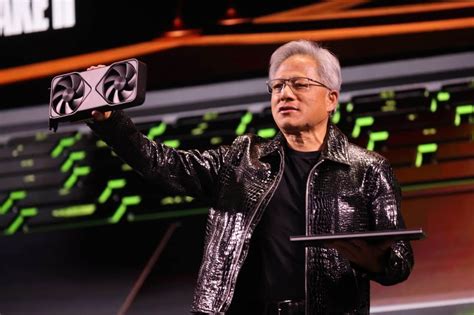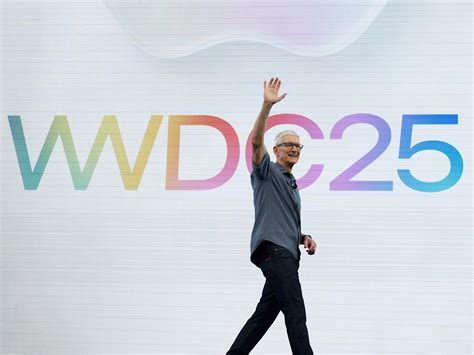
Artificial intelligence will revolutionize every job, potentially leading to widespread replacement of human roles, Nvidia CEO Jensen Huang warned in a recent address at the World Government Summit in Dubai. Huang emphasized that AI’s impact will be felt across all industries, urging individuals to proactively adapt and leverage the technology rather than fear it.
Nvidia’s chief executive painted a picture of a future dramatically reshaped by artificial intelligence, impacting roles from manufacturing to creative industries. “AI will take over every single job,” Huang stated, emphasizing the breadth of the coming transformation. He clarified that his statement wasn’t meant to cause alarm but rather to underscore the need for preparation and adaptation. “Our job is to create technology such that everybody could be a technologist,” he added, suggesting that embracing AI tools will be crucial for navigating the future workforce.
Huang’s remarks carry considerable weight, given Nvidia’s prominent position in the AI landscape. The company’s GPUs are the backbone of many AI systems, making it a key player in driving the technology’s development and deployment. His vision of a world where AI permeates every aspect of work aligns with the ongoing advancements in machine learning, natural language processing, and robotics.
The CEO also addressed concerns about job displacement, suggesting that AI should be viewed as a tool to augment human capabilities rather than a direct replacement. “The purpose of AI is not to replace jobs; the purpose of AI is to enable you to do the job you do now, only you could do it to so much better,” Huang stated. He encouraged individuals to upskill and learn how to utilize AI tools to enhance their productivity and creativity, thereby remaining relevant in the evolving job market.
Huang highlighted the importance of accessible technology, stating that everyone should have the opportunity to become a technologist. Nvidia is actively working on developing user-friendly AI platforms and tools that empower individuals with limited technical expertise to harness the power of artificial intelligence.
The Nvidia CEO’s pronouncements echo a broader debate about the future of work in the age of AI. While some experts predict mass unemployment due to automation, others believe that AI will create new jobs and opportunities, requiring humans to adapt and acquire new skills. Huang’s vision falls more into the latter camp, emphasizing the importance of lifelong learning and embracing technological advancements.
The World Government Summit, where Huang made his remarks, provides a platform for global leaders to discuss pressing issues and explore innovative solutions. AI is a recurring theme at the summit, reflecting its growing importance in shaping the future of governments, economies, and societies. Huang’s participation underscores Nvidia’s commitment to engaging with policymakers and stakeholders to ensure the responsible and beneficial deployment of AI technology.
Beyond the general prediction of job transformation, Huang discussed the importance of specialized skills in this evolving landscape. He stressed the need for individuals to focus on areas where human creativity, critical thinking, and emotional intelligence remain essential, suggesting that these skills will be highly valued in the AI-driven future.
Huang’s perspective aligns with studies indicating that while AI can automate routine tasks, it struggles with complex problem-solving, strategic decision-making, and interpersonal communication. These are precisely the areas where humans can leverage their unique abilities to excel in the workplace.
Nvidia’s investments in AI research and development reflect its belief in the technology’s transformative potential. The company is actively developing AI solutions for a wide range of industries, including healthcare, transportation, finance, and manufacturing. These advancements are driving innovation and creating new opportunities for businesses and individuals alike.
However, the widespread adoption of AI also raises ethical considerations. Concerns about bias, privacy, and security must be addressed to ensure that AI is used responsibly and for the benefit of all. Huang acknowledged these challenges, emphasizing the importance of developing ethical guidelines and regulations to govern the development and deployment of AI technology.
Nvidia is actively engaged in promoting responsible AI practices. The company has established partnerships with universities and research institutions to explore the ethical implications of AI and develop strategies for mitigating potential risks. Huang believes that collaboration between industry, government, and academia is essential for ensuring that AI is used in a way that aligns with societal values.
In conclusion, Nvidia CEO Jensen Huang’s warning about the pervasive impact of AI on the job market underscores the urgency for individuals and organizations to adapt and embrace the technology. While AI may automate certain tasks and potentially displace some jobs, it also presents opportunities for innovation, productivity gains, and the creation of new roles. By focusing on developing uniquely human skills, upskilling in AI-related technologies, and promoting responsible AI practices, individuals and societies can navigate the AI revolution and reap its benefits.
In-Depth Analysis and Expanded Context:
The remarks by Jensen Huang weren’t simply a doomsday prediction, but a call to action. They highlight the accelerating pace of AI development and its implications for the workforce. To understand the significance, it’s essential to dissect the various facets of Huang’s statements and their broader context.
-
The Nature of AI Transformation: Huang’s statement, “AI will take over every single job,” is deliberately provocative. It’s not necessarily about complete job elimination but rather a fundamental shift in the nature of work. AI will likely automate many routine and repetitive tasks, freeing up humans to focus on higher-level activities that require creativity, critical thinking, and emotional intelligence. This shift will necessitate a significant reskilling and upskilling effort across all industries.
-
Nvidia’s Role in the AI Revolution: Nvidia’s dominance in the AI hardware market gives Huang’s pronouncements added weight. The company’s GPUs are essential for training and deploying AI models, making Nvidia a central player in the AI ecosystem. Their ongoing investments in AI research and development, along with their partnerships with leading research institutions, position them at the forefront of technological innovation. This allows Huang to observe and predict the trajectory of AI advancement with considerable insight.
-
The Augmentation vs. Replacement Debate: Huang’s emphasis on AI augmenting human capabilities aligns with a growing consensus among AI experts. While some fear widespread job displacement, many believe that AI will primarily serve as a tool to enhance human productivity and creativity. This perspective highlights the importance of human-machine collaboration, where humans and AI work together to achieve better outcomes than either could achieve alone.
-
The Importance of Accessibility: Huang’s call for making technology accessible to everyone is crucial for ensuring equitable participation in the AI-driven economy. If AI tools and platforms are only accessible to a select few with advanced technical skills, it could exacerbate existing inequalities. Nvidia’s efforts to develop user-friendly AI tools and platforms are aimed at democratizing access to the technology and empowering individuals from all backgrounds to leverage its potential.
-
Ethical Considerations: The rapid advancement of AI raises complex ethical questions about bias, privacy, and security. AI systems can perpetuate and amplify existing biases if they are trained on biased data. The use of AI for surveillance and data collection raises concerns about privacy violations. And the potential for AI to be used for malicious purposes raises serious security concerns. Huang’s acknowledgement of these challenges and his call for responsible AI practices are essential for ensuring that AI is developed and deployed in a way that benefits society as a whole.
-
The Role of Government and Education: Navigating the AI revolution will require a concerted effort from governments, educational institutions, and businesses. Governments need to develop policies that promote innovation while also addressing the potential risks of AI. Educational institutions need to adapt their curricula to prepare students for the AI-driven workforce. And businesses need to invest in training and reskilling programs to help their employees acquire the skills they need to thrive in the new economy.
-
Historical Parallels: The AI revolution is not the first time that technological advancements have disrupted the job market. The Industrial Revolution, for example, led to significant changes in the way goods were produced and the types of jobs that were available. While the Industrial Revolution caused some initial displacement, it also created new industries and opportunities. Similarly, the AI revolution is likely to create new jobs and industries that we cannot even imagine today.
-
The Need for Adaptability: The key to navigating the AI revolution is adaptability. Individuals and organizations need to be willing to embrace change and learn new skills. Those who are resistant to change risk being left behind. The ability to adapt and learn continuously will be a crucial skill in the AI-driven future.
-
Beyond Automation: AI as a Creative Partner: While automation is a key aspect of AI’s impact, its potential extends far beyond simply replacing routine tasks. AI is increasingly being used as a creative partner in fields like art, music, and design. AI algorithms can generate new ideas, assist with creative tasks, and even create entirely new forms of art. This suggests that AI will not only transform the way we work but also the way we create.
-
The Future of Work is Hybrid: The most likely scenario is a hybrid future where humans and AI work together in complementary roles. Humans will bring their creativity, critical thinking, and emotional intelligence to the table, while AI will handle the routine and repetitive tasks. This hybrid approach will allow us to leverage the strengths of both humans and AI to achieve better outcomes.
Concrete Examples of AI’s Impact Across Industries:
-
Healthcare: AI is being used to diagnose diseases, develop new drugs, and personalize treatment plans. AI-powered robots are assisting with surgeries and providing care to patients.
-
Finance: AI is being used to detect fraud, manage risk, and provide personalized financial advice. AI-powered trading algorithms are making investment decisions.
-
Manufacturing: AI is being used to automate production lines, optimize supply chains, and improve quality control. AI-powered robots are performing repetitive tasks.
-
Transportation: AI is being used to develop self-driving cars, optimize traffic flow, and improve logistics. AI-powered drones are being used for delivery services.
-
Customer Service: AI-powered chatbots are providing customer support, answering questions, and resolving issues. AI is being used to personalize customer experiences.
-
Education: AI is being used to personalize learning experiences, provide feedback to students, and automate administrative tasks. AI-powered tutors are providing personalized instruction.
The Broader Societal Implications:
The AI revolution has profound implications for society as a whole. It has the potential to improve our lives in many ways, but it also poses significant challenges.
-
Economic Inequality: If the benefits of AI are not distributed equitably, it could exacerbate economic inequality. Those who have the skills and resources to take advantage of AI will likely prosper, while those who lack these resources may be left behind.
-
Social Disruption: The widespread adoption of AI could lead to social disruption if it results in mass unemployment or significant changes in the way we live and work.
-
Privacy Concerns: The increasing use of AI raises concerns about privacy. AI systems often collect and analyze vast amounts of data, which could be used to track our movements, monitor our behavior, and make decisions about our lives.
-
Bias and Discrimination: AI systems can perpetuate and amplify existing biases if they are trained on biased data. This could lead to discriminatory outcomes in areas such as hiring, lending, and criminal justice.
-
Autonomous Weapons: The development of autonomous weapons raises serious ethical and security concerns. Autonomous weapons could potentially make decisions about who to kill without human intervention.
Mitigating the Risks and Maximizing the Benefits:
To mitigate the risks and maximize the benefits of AI, it is essential to:
-
Invest in Education and Training: We need to invest in education and training programs to prepare individuals for the AI-driven workforce. This includes teaching people how to use AI tools and platforms, as well as developing critical thinking, creativity, and problem-solving skills.
-
Develop Ethical Guidelines and Regulations: We need to develop ethical guidelines and regulations to govern the development and deployment of AI. These guidelines should address issues such as bias, privacy, security, and accountability.
-
Promote Public Awareness: We need to promote public awareness about the potential benefits and risks of AI. This will help to ensure that AI is used in a way that aligns with societal values.
-
Foster Collaboration: We need to foster collaboration between industry, government, and academia. This will help to ensure that AI is developed and deployed in a responsible and beneficial way.
-
Support Social Safety Nets: We need to strengthen social safety nets to protect those who may be displaced by AI. This includes providing unemployment benefits, retraining programs, and other forms of support.
The Long-Term Vision:
The long-term vision for AI is a future where humans and AI work together to create a better world. AI has the potential to solve some of the world’s most pressing problems, such as climate change, poverty, and disease. By working together, we can harness the power of AI to create a more sustainable, equitable, and prosperous future for all.
Frequently Asked Questions (FAQs):
1. Will AI completely eliminate all jobs, leaving humans unemployed?
No, while AI will automate many tasks and transform existing jobs, complete job elimination across all sectors is unlikely. Jensen Huang’s statement emphasizes the need for adaptation and upskilling. AI is expected to augment human capabilities, freeing up individuals to focus on tasks requiring creativity, critical thinking, and emotional intelligence. New jobs and industries will likely emerge as AI continues to develop. The focus should be on preparing for the changing job market rather than fearing mass unemployment.
2. What types of skills should individuals focus on to remain relevant in the AI-driven job market?
Individuals should focus on developing uniquely human skills that AI cannot easily replicate, such as:
- Critical Thinking and Problem-Solving: The ability to analyze complex problems and develop creative solutions.
- Creativity and Innovation: Generating new ideas and approaches.
- Emotional Intelligence: Understanding and managing emotions, building relationships, and collaborating effectively.
- Communication and Collaboration: Effectively communicating ideas and working with others.
- Technical Skills: Acquiring proficiency in AI-related technologies and tools.
Lifelong learning and adaptability are also crucial for staying relevant in the evolving job market.
3. How can governments and organizations ensure that AI is developed and deployed responsibly and ethically?
Governments and organizations can promote responsible AI development and deployment by:
- Developing Ethical Guidelines and Regulations: Establishing clear guidelines for AI development and use, addressing issues such as bias, privacy, security, and accountability.
- Investing in Education and Training: Preparing individuals for the AI-driven workforce and promoting public awareness about AI’s potential benefits and risks.
- Fostering Collaboration: Encouraging collaboration between industry, government, and academia to ensure that AI is developed in a responsible and beneficial way.
- Promoting Diversity and Inclusion: Ensuring that AI development teams are diverse and representative of the populations they serve, to mitigate bias and promote fairness.
- Supporting Social Safety Nets: Strengthening social safety nets to protect those who may be displaced by AI and provide retraining opportunities.
4. What is Nvidia’s role in the AI revolution, and how is the company addressing the potential challenges?
Nvidia is a key player in the AI revolution, with its GPUs being essential for training and deploying AI models. The company is actively investing in AI research and development, developing user-friendly AI tools and platforms, and partnering with research institutions to explore the ethical implications of AI. Nvidia is committed to promoting responsible AI practices and ensuring that AI is developed and deployed in a way that benefits society as a whole. Jensen Huang’s pronouncements reflect Nvidia’s commitment to engaging with policymakers and stakeholders to shape the future of AI.
5. How can individuals access AI tools and technologies to enhance their skills and productivity?
There are several ways for individuals to access AI tools and technologies:
- Online Courses and Tutorials: Numerous online platforms offer courses and tutorials on AI-related topics, ranging from basic introductions to advanced programming.
- Open-Source AI Platforms: Many open-source AI platforms and tools are available for free, allowing individuals to experiment and learn without significant financial investment.
- AI-Powered Software Applications: Many software applications now incorporate AI features that can enhance productivity and streamline tasks.
- Community Events and Workshops: Attending community events and workshops can provide opportunities to learn from experts and network with other AI enthusiasts.
- Nvidia Resources: Nvidia offers various resources, including developer tools, training materials, and community forums, to help individuals learn and develop AI skills.
Actively seeking out these resources and engaging in continuous learning is crucial for adapting to the AI-driven world.









